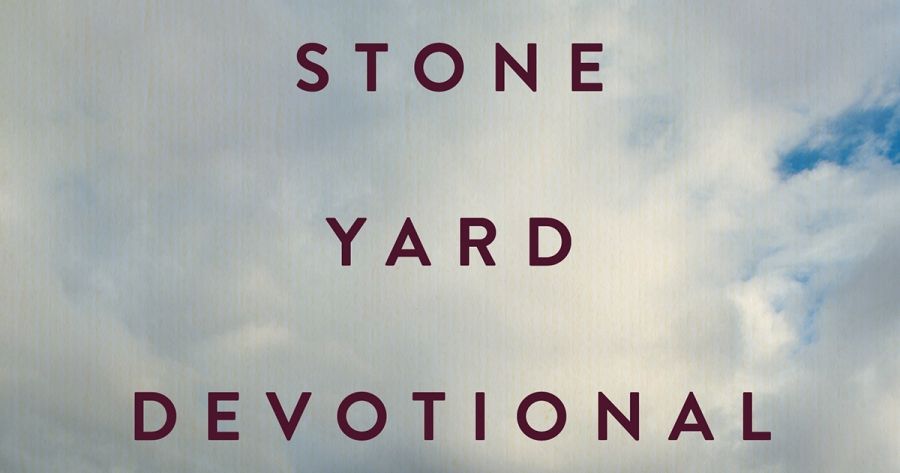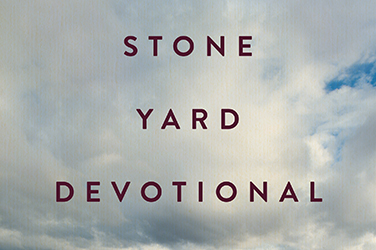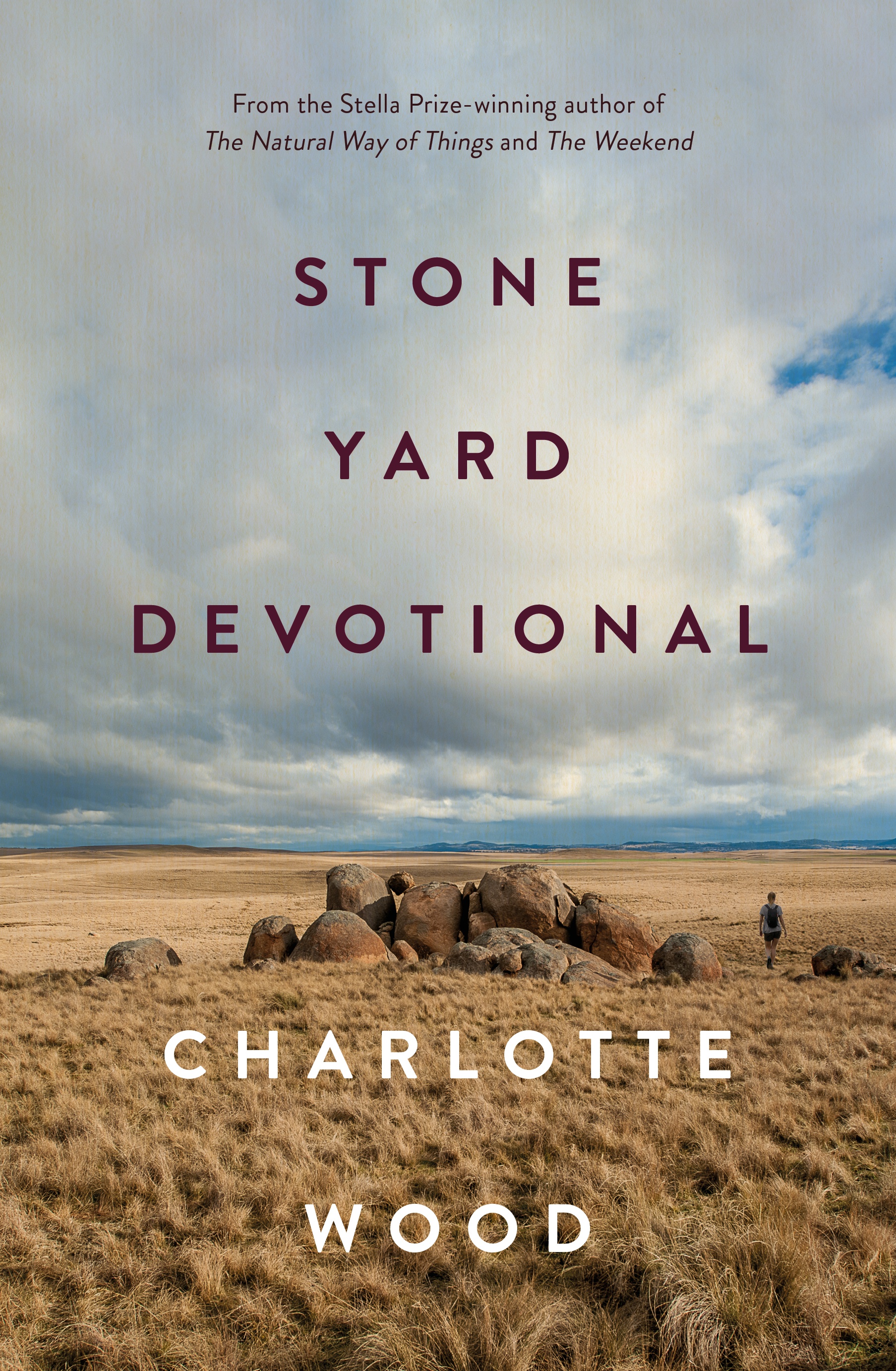
- Free Article: No
- Contents Category: Fiction
- Review Article: Yes
- Article Title: Naming the bones
- Article Subtitle: A meditation on consequence and care
- Online Only: No
- Custom Highlight Text:
'Arrive finally at about three.’ The opening sentence of Charlotte Wood’s seventh novel does a lot in five simple words, emblematic of her gift for compression. With the direct, truncated prose of a diary entry, we are suddenly on intimate terms with another mind, impatient to begin. The unnamed narrator is a woman alone, returning to the country town where she grew up and where her parents are buried. ‘Your bones are here, beneath my feet,’ she thinks, standing at their graves for the first time in thirty-five years. So begins her reckoning.
- Featured Image (400px * 250px):

- Alt Tag (Featured Image): Jennifer Mills reviews 'Stone Yard Devotional' by Charlotte Wood
- Book 1 Title: Stone Yard Devotional
- Book 1 Biblio: Allen & Unwin, $32.99 pb, 297 pp
- Book 1 Cover Small (400 x 600):

- Book 1 Cover (800 x 1200):

In her book on craft, The Luminous Solution (2021), Wood writes directly about the ways in which religion formed her as a writer: ‘One of the things growing up Catholic taught me is that I can hold two opposing views in my head at once.’ She learned to value imaginative space, wonder, and transformation, while becoming, as she puts it, ‘increasingly outraged by double standards and hypocrisy’. She goes on to argue that this ambivalence or negative capability is essential to any artist.
Those of us raised in a Catholic setting are sometimes too quick to credit the church with a sense of justice that could just as easily be ascribed to that early awareness of institutional hypocrisy. Whatever the source, questions about the work of justice are woven through this novel, as Wood looks for meaning and purpose in the space between worldly action and monastic retreat. The nuns have a way of life that exemplifies the latter, while the returning bones of another activist sister and their living escort, the formidable Helen Parry, represent the former.
Is it possible to right wrongs or better to retreat from the world and be purified by silence? Would such a retreat be distinguishable from quitting in despair? Wood’s narrator quotes Simone Weil (‘Attention, taken to its highest degree, is the same thing as prayer’) and shares her hope that such attention might ‘cure our faults’. Even if it can’t, Wood’s generous capacity for sustained attention is a gift to readers. Her gaze is not calm but steady, unbroken, asking to be met.
Unease hums through this novel like cicadas. There is ‘a ghostly feeling of threat, of portent’; outside a charity shop, the narrator professes ‘a strange fear of being recognised’. Unlike in The Natural Way of Things (2019), violence against women is backgrounded here, present in suggestive fragments. Wood’s fury has simmered to a concentrate, cautiously applied. Everything keeps coming back to bones, to digging in the earth. At times, death circles; at others it is already here, part of the very soil of life.
As in all Wood’s work, non-human animals provide energy and emotion, become expressions of unspoken feeling or of moral failing. Here, the convent’s response to a plague of mice is an opportunity to consider the ways humans attend to animal life: with pragmatism, brutality, empathy, and care, sometimes all at once. Wood can’t help taking pleasure in the dreadfulness of mice, memorably describing their young as ‘awful, long bald slugs’, but she also values these animals for what they uncover, the vulnerabilities they reveal.
In Stone Yard Devotional, Wood has stripped away much of the exterior construction of the novel, almost dispensing with the need for a series of dramatic events to carry the movements of her character’s inner life. Instead, material detail is lifted, weighed, examined, the structure patterned after a mind at work. The diaristic form provides the perfect container for what could be described as an archaeologist’s methodology, a careful sifting through the bones of memory, doubt, injustice, grief, moving through layers of time, turning up more questions than answers.
In one anecdote, the words of a person bereaved by suicide are described as having ‘the austerity of truth’. The same might be said of this novel, which seeks – humbly, capably – to discard pretension, to be honest with uncertainties. There is no extinguishing the irony and humour in Wood’s intelligence, but this is a writer who has had enough of artifice. Perhaps it is the influence of those bare, rubbed plains.
Like Amanda Lohrey’s The Labyrinth (2020), and Wood’s previous novel, The Weekend (2019), Stone Yard Devotional is a work of aftermath, a meditation on consequence, responsibility, and care. It is rich with questions about the nature of atonement, the possibility of redemption. If Wood withholds some detail about what is being regretted or forgiven, that is part of this book’s discomfort, but also part of its masterful balance. Not restraint, but strength: a willingness to hold the unresolvable in close suspension.
Stone Yard Devotional invites the kind of contemplation and pause that is rare in a world of constant distraction. Its slow pace is counterbalanced by the shafts of meaning that fall right through Wood’s lucid prose. Its stillness comes to feel less like a retreat and more like a radical practice, the soul-work of holding oneself accountable. If there is peace to be found here, it is hard won.


Comments powered by CComment